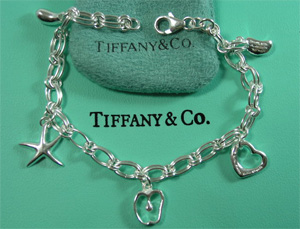eBay Wins Decisive Victory Over Tiffany in Landmark Case
 Judge Richard Sullivan’s ruling against Tiffany’s varied claims of trademark infringement is fairly absolute. When word of the ruling reached the MIT Media Lab where I was speaking this week, the audience there was delighted.
Judge Richard Sullivan’s ruling against Tiffany’s varied claims of trademark infringement is fairly absolute. When word of the ruling reached the MIT Media Lab where I was speaking this week, the audience there was delighted.
The unambiguous ruling for the right of efficient commercial speech and immunization for intermediaries who take good-faith precautions and adhere to DMCA safe harbor requirements is good news for the Internet as a medium for business.
This case is part of a larger pattern of rights holders going after intermediaries for contributory liability, rather than after actual violators, who may be harder to identify and less lucrative to pursue. It’s also part of a pattern of eastern US courts supporting online advertising, and western courts supporting mark holders.
For an introduction to the case, see this post from the start of Tiffany v. Ebay, which describes the general charges and the often-overlooked competitive pressures between the two companies.
The EFF, Eric Goldman, and Rebecca Tushnet provide complete analysis. These three so reliably offer useful perspectives that you’ll now find links to their blogs permanently in the blogroll in the right-hand column.
The EFF connects the ruling to online speech of all kinds:
This decision sends a clear signal to intermediaries worried about their liability for their users’ potentially infringing activity: it is not your job to police all potential infringement on your site. That is a good thing for free speech of all kinds. When platform providers are concerned about being held liable for the alleged misdeeds of their users, their reaction is to remove anything that might be infringing. As a result, wide swaths of creative and lawful conduct are wiped from the Internet.
Eric Goldman walks through each variety of infringement claimed, and the court’s rejection of Tiffany’s complaint.
Rebecca Tushnet digs deeper into what speech concessions eBay gave away for expediency, and the intracies of Tiffany’s false advertising claims.
Its unclear that IP law stories ever fully conclude. However, this case will provide online hosts greater certainty of their protections and obligations. And you can expect it to be cited in upcoming cases, such as American Airlines v. Google.

 The future of digital experiences will be built by strategists who grasp the full array of emerging business, social, and technical models. Specialties in user experience, branding, application design, and data science are laying the foundation for richer user experiences and business models breakthrough products and revenue based marketing.
The future of digital experiences will be built by strategists who grasp the full array of emerging business, social, and technical models. Specialties in user experience, branding, application design, and data science are laying the foundation for richer user experiences and business models breakthrough products and revenue based marketing.